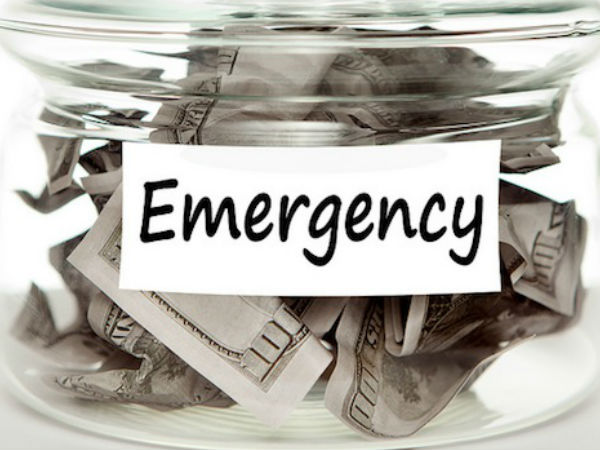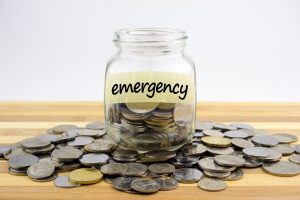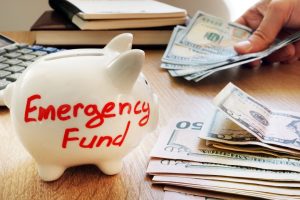Life paths are constantly changing, and money problems can arise at any time. If you lose your job, have medical bills, or your car breaks down, you need a safety net of cash to get you through. This safety net is called an emergency fund, and this article explains why it’s important to have a safety net and how to build one.
If you want extra money in the event of a disaster, you can open a savings account specifically for this purpose. It is only used for real emergencies, not for planned expenses such as vacations or buying something new. This fund can save you money if something bad happens.
Importance of an Emergency Fund
- Financial Security: Having an emergency fund can help you relax because you know your money is safe if something bad happens. You don’t have to take out debt or take out a high-interest loan to cover unexpected expenses.
- Unemployment: Due to the instability of the labor market, anyone can become unemployed. An emergency fund can help you get through between jobs and ensure you can pay your bills while you look for another job.
- Medical Emergencies: Health problems can occur at any time. If you don’t have an emergency fund, it can be difficult to pay medical bills and other eventual expenses. This fund allows you to focus on getting better without worrying about money.
- Car and Home Repair: The car breaks down, and the house needs to be repaired. An emergency fund can be the lifesaver and help you fix your car or solve major home problems without spending a lot of money.
- Spending Options: If you have an emergency fund, you can spend the extra money without worrying about needing it in an emergency. This can help you become wealthier over time.
Ways to Reduce Costs on Auto Maintenance
- Make a Plan: Figure out how much money you’ll need in case of a disaster. Most people say they should save enough money to cover three to six months of living expenses, but that may not work for everyone.
- Create a Separate Account: Your emergency fund should be kept separate from your regular savings or checking account. This distribution helps prevent you from using money for non-urgent situations.
- Keep Donating: put money aside every month as an emergency relief fund. Set a monthly or biweekly donation goal and stick to it. Some banks let you set up automatic payments to an emergency fund, which is a great way to save money.
- Reduce Unnecessary Expenses: Monitor your monthly expenses and reduce unnecessary expenses. Put extra money in a disaster fund.
- Windfalls and Bonuses: Money you don’t know where it will come from, such as a tax refund or a job bonus, can help you build an emergency fund.
Take Care of Your Emergency Fund:
Once you have an emergency fund, it’s just as important to keep it up-to-date and handle it properly so that it works. To help you with this, here are some important tips:
- Financial Emergency: You should check your money regularly because your financial emergency needs may change as your life changes. Check your targets regularly and make changes if necessary.
- Replenish it on time: Once your emergency fund is depleted, it should be paid back as quickly as possible. This ensures that it is ready for the next event that has never happened before.
- Stay Liquid: Keep emergency funds in accounts that are available and easily accessible. Don’t tie it to long-term investments, as you should be able to use it whenever you need to.
- Stay Out of Debt: One of the most important reasons to have an emergency fund is to avoid falling into debt if necessary. If you can help it, don’t accept a high-interest loan. Use your money instead.
- Teach Your Family: Do you have a family? Make sure everyone knows how and when money is spent. This way, it can serve as a safety net for your family’s money.
Conclusion
An emergency fund is more than just a monetary idea; it’s an important part of your overall financial health. By understanding the importance of having a financial tool and working to build and maintain it, you can protect yourself and your family from the unexpected financial challenges that life can bring. Create an emergency fund today and get your finances in order. This way, you are better prepared for anything that may happen in the future.
FAQs
1. How much stuff should I keep for emergencies?
In most cases, three to six months of living expenses is an appropriate amount, but this can vary from person to person. Some experts say you should save for up to a year to be safer.
2. Where should I keep my savings for emergencies?
Your emergency fund should be kept in a separate savings or money market account. These accounts are easily accessible, and the money in them does not change when the market changes.
3. Can I get a better return on my emergency fund investment?
It may be tempting to try to get a better return on your investment, but your emergency fund should be easy to access and risk-free. It is not a good idea to invest money in stocks or other long-term investments that can be risky and highly volatile.
4. How often should I check my reserve funds?
It is important to check your money regularly. Every time your income, expenses, or family size change, you need to take a fresh look at your financial situation.



